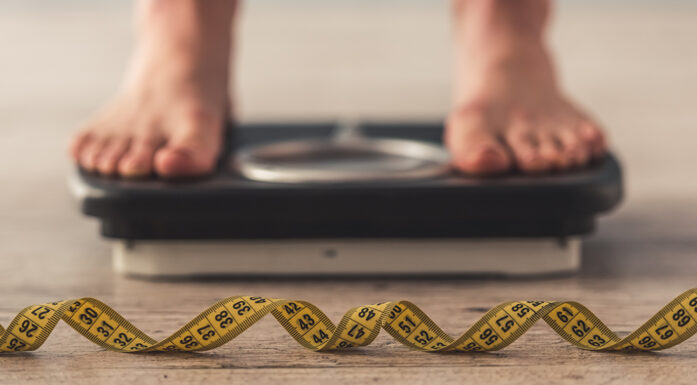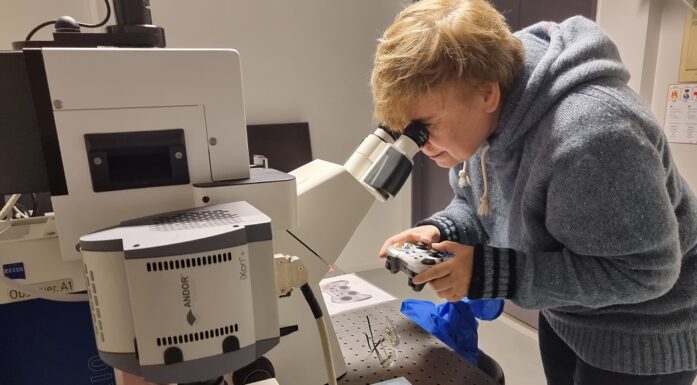Abuse can lead to postpartum depression
Women who experience abuse from someone they know have an 80 per cent higher chance of developing postpartum depression as women who have never been abused.
In a survey answered by 53 000 Norwegian women, 32 per cent said that they had experienced some kind of abuse. The women in the survey were on average 30 years old and well educated. Regardless if a mother was abused right before pregnancy, or years before, abuse was found to drastically increase the risk that she would experience depression after having brought a new life into the world. In addition, the survey showed that physical violence and threats are much worse coming from someone you know than from a stranger.
This is what Marie Flem Sørbø, a PhD candidate at NTNU, has found in her research. Flem Sørbø is also a medical doctor at Ålesund Hospital, in the Department of Physical Medicine and Rehabilitation and at the abuse centre for sexual and physical abuse from close relations.
Fear that it may happen again
“Abuse from people who are close relations can be taxing in many different ways. First of all, it often happens at home, a place where you should be able to feel safe,” Flem Sørbø explains. “Second, the abuse involves a breaking of trust, because it comes from someone to whom the woman has had a close relationship. Third, violence and threats of violence are controlling—if the attacker is familiar, the fear that it may happen again is much greater.”
Flem Sørbø used the Norwegian Mother and Child Cohort Study, which encompasses 90 000 women, and was carried out between 1999 and 2008. Her study relies on results from 53 000 of these women. The familiar person in her study could be a partner, an uncle, a father, or another person in the woman’s social circle. Though close examination of this material, Flem Sørbø found the strong connection between abuse and postpartum depression.
Abused women lead shorter lives
It is a well known fact that chronic stress, which is often experienced by abuse victims, can affect the autonomic nervous system and the immune system. The autonomic nervous system is the part of the nervous system that controls unconscious processes such as breathing, heart rate and pulse.
We also know that abused women tend to develop habits that are bad for their health, such as drinking, smoking and illegal drug use.
Abused women have a shorter life expectancy, experience more chronic illnesses, have a lower overall life quality and confidence, and are more prone to self-harm.
In addition, abused women have increased mortality rates due to a higher risk of suicide, and are more prone to cardiovascular and other diseases.
Sources: “Vold mot Kvinner”, Cappelen Damn publications, 2014. Marie Flem Sørbø, a medical doctor and NTNU PhD candidate, wrote a chapter in this book on the health consequences of abuse in women.
Conclusions
Flem Sørbø’s study has three clear conclusions:
- Women who have been abused by someone they know are 80 per cent more likely to experience postpartum depression.
- Women who have been abused by a stranger are 50 per cent more likely to experience postpartum depression.
- There are several types of abuse, and the more types of abuse a woman has experienced, the worse it is. Physical abuse is the least severe. Sexual or psychological abuse tends to be much more damaging and difficult to live with.
Worse than natural disasters and accidents
“Psychological abuse is when you are devalued and humiliated, or threatened over a long period of time,” Flem Sørbø says. She explains that the women characterized the most tramuatizing episodes as intense, sudden, uncontrollable and unexpected, and very negative.
“Violent episodes, physical injury and non-death threats that involve a loss of connection or betrayal from important caregivers can be more traumatizing than experiencing a natural disaster or serious accident,” Flem Sørbø says.
Children can become insecure
Between 5 and 25 per cent of women in Norway experience some kind of postpartum depression. The symptoms may include, sadness, exhaustion, changes in sleep and eating patterns, crying, anxiousness and irritability. The child of a depressed mother may become stressed, insecure, and develop a bad relationship to his or her parents. Flem Sørbø reminds us that the abuse experienced by the mother may have happened years before the child was born.

It is worse to be hit or threatened by someone you know than by a stranger. Photo illustration: Thinkstock
It is okay to be asked
“Postpartum depression is normal, and violence is (unfortunately) normal. It’s important to demystify this by talking more about it,” Flem Sørbø says.
In a Norwegian study where midwives in four municipalities asked pregnant women if they had experienced abuse, or if they were worried for their children, almost everyone responded that they welcomed being asked about abuse. Eighty-five per cent of the women who had experienced abuse said the same thing.
Important to take precautions
“It is quite rare that someone speaks up about abuse without being prompted. Our project shows that asking questions is important. By including questions about abuse during normal pregnancy check-ups, we have a unique possibility to uncover violence and abusive episodes, which may help prevent health issues for both mother and child. The project also shows that it is important for auxiliary staff working in health- and social services, police, and other agencies not to be afraid to ask these important questions,” Flem Sørbø says.





